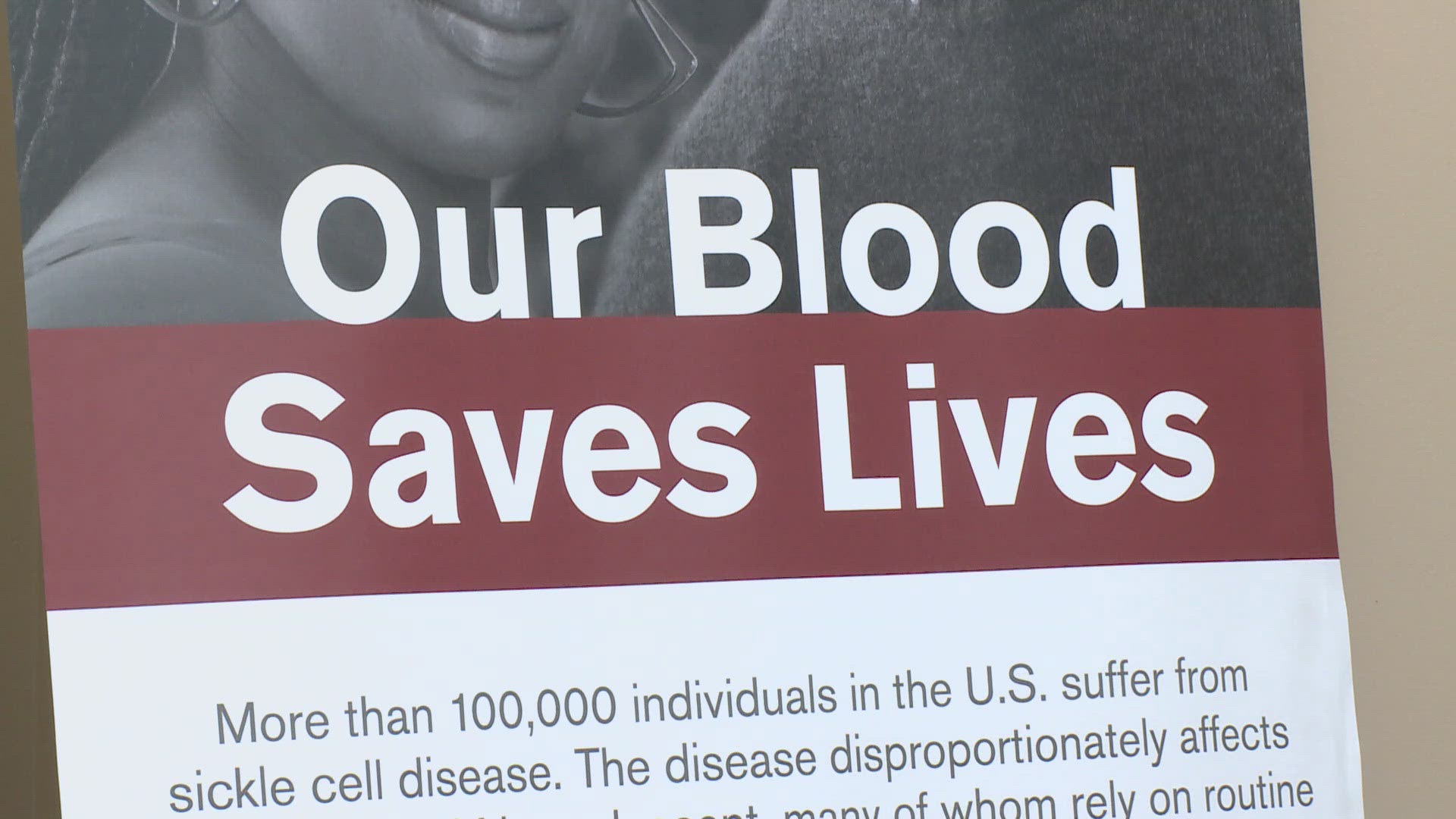ST. LOUIS — A blood drive Saturday helped provide support for and raise awareness around a disease that impacts millions across the globe.
Sickle cell disease is the most common genetic blood disease in America and primarily affects the African American community.
Wendy Tabron, American Red Cross-National Biomedical Partnership Officer, said the Red Cross needs blood every two minutes.
"When you know that you could possibly match to support a sickle cell patient, you should run because that patient is lying in the hospital, possibly sick and waiting for blood," she said.
That's why the blood drive at Kappa Alpha Psi Fraternity Saturday was so vital. The American Red Cross hosted the event to advocate for those who live the genetic blood disease.
Matt Whitener, with Kappa Alpha Psi, said it's an important partnership.
"We try to reach out into the community and do everything that we can to be able to connect and be able to give back, and this is just such an awesome opportunity to do so, because it touches so many different people in their lives, especially in the black community," he said.
Whitener added how important awareness is for St. Louis and across the country.
"It disproportionately affects African Americans, and we need to be able to make sure that they're aware of the fact that we can impact this, that we can make a difference. We've got to come together and use our resources to do so," he said.
Rosemary Britts is one of the many whose life is changed forever because of sickle cell. Her daughter, Ronisha, passed away five years ago at the age of 29.
"She was an amazing warrior. She fought all the way through her life. She lived and did the things that anyone else would do. I raised her to believe that she can do whatever she put her mind to. We might have to alter it a little bit because she lived with sickle cell disease, but that didn't stop her, and so she just lived a very full life," she said.
It's her daughter's strength and story that led Britts to start her nonprofit, Sickle Cell Assocation.
"We work to bring awareness of sickle cell in the community in an effort to reduce the number of babies born with the disease to unsuspecting parents," she said.
Britts said the biggest thing people don't understand about the disease is that you could be carrying the trait or the gene for the disease and not know it.
"There's no complications or anything that really goes with that, but if you have two parents that have that trait, they have a one in four chance of giving birth to a child with the disease, so they need to know their status of both individuals before they grow their family," she said.
According to Tabron, 30 people were lined up within the first 30 minutes of the blood drive.
"While we celebrate sickle cell awareness in September, these patients need blood every single month, as some need multiple blood transfusions, and without our blood, they may wait for blood," she said.
Education is vital, which is why, Tabron wants the community to know one in three African American blood donors is a match for people living with the disease.
"Just remember that someone needs your blood every two minutes, and then our sickle cell patients, they can't make it. If they go through a pain, a crisis and need a transfusion, we have to have blood on the shelf, and that comes from donors," she said.
Anthony Thompson was one of the many giving blood on Saturday. He brought in many employees from his company, Kwame Building Group, as well as his whole family to donate.
"If anybody needs any help, it's the African American community. We have to give back to help each other if we're going to survive and thrive," he said.
That mentality is the whole reason Britts does what she does with her daughter's memory at the heart of it all.
"I know that she would be smiling, saying, 'Go, mom, go,' and telling me to continue on, because even though she's gone, there's other people that are living with the disease, and this is being helpful to them," she said.

